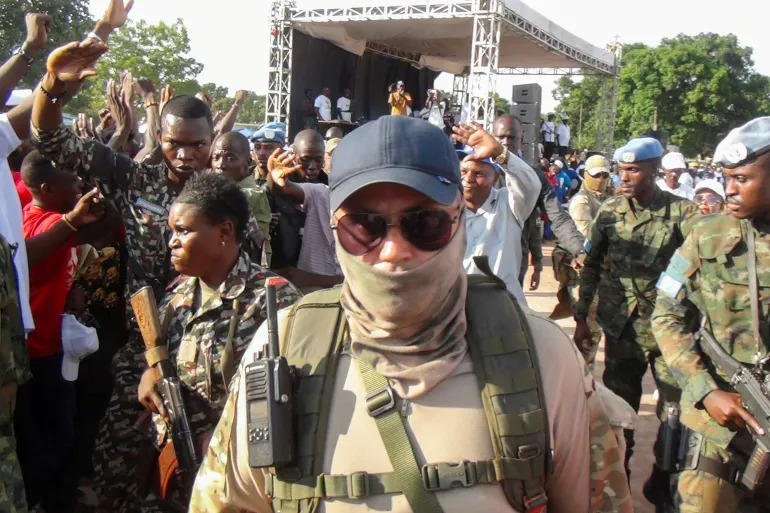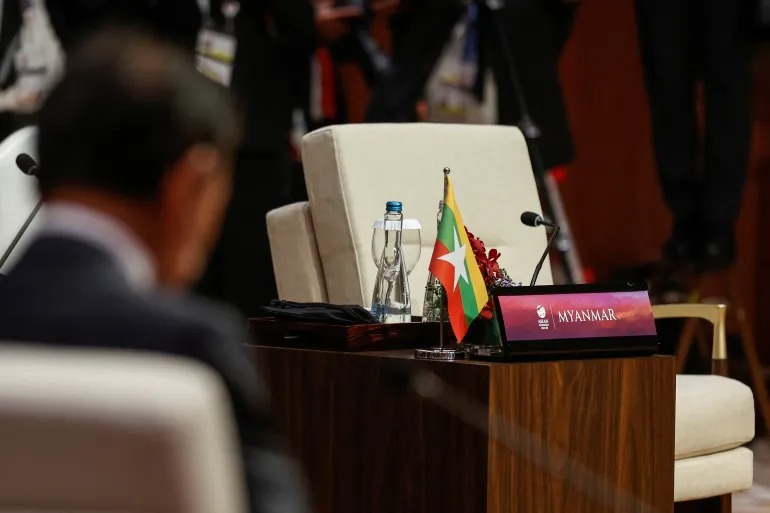In a bold move aimed at countering a significant threat to global security, the United Kingdom government is poised to declare Russia’s notorious Wagner Group as a “terrorist” organization. This groundbreaking decision, expected to be formalized as early as Wednesday, marks a pivotal moment in international efforts to curb the actions of this paramilitary group, known for its involvement in various conflicts worldwide. The move follows mounting pressure on the UK government to take decisive action against the group, which has long been condemned for its violent and destabilizing activities.
Draft Order to Target Wagner’s Assets
The BBC, serving as the UK’s public service broadcaster, has reported that a draft order will be presented in parliament to designate Wagner’s assets as “terrorist” property, thereby enabling their seizure. This designation will have far-reaching implications, making it illegal for anyone within the UK to either join the group or provide support to it. The Guardian newspaper has further indicated that this critical order is set to be unveiled on Wednesday.
This strategic decision is underpinned by the Terrorism Act 2000, which empowers the UK government to proscribe entities that pose a significant threat to national and international security. The Home Office, as cited by The Guardian, has justified this move by emphasizing “the nature and scale of the organization’s activities as well as the threat they pose to British nationals abroad.”
Home Secretary’s Stance and Global Implications
Home Secretary Suella Braverman minced no words when describing Wagner, asserting that it is “violent and destructive” and characterizing it as a “military tool of [President] Vladimir Putin’s Russia.” In her statement, she underscored the gravity of the situation, emphasizing that the group’s actions constitute a “threat to global security.” This designation underscores the UK’s commitment to safeguarding its citizens and global stability.
The UK had previously imposed sanctions on Wagner, targeting not only the group itself but also some of its high-ranking commanders and individuals associated with it in various African nations, all over allegations of human rights abuses. However, the decision to go a step further by designating it as a terrorist organization underscores the seriousness with which the UK government views this threat. This move comes after sustained pressure, with the opposition Labour party, led by David Lammy, calling for the group’s proscription back in February.
David Lammy welcomed the decision on social media platform X (formerly known as Twitter), stating, “This is long overdue, but it’s welcome the government has finally acted.” He also called for further action, urging the government to push for a Special Tribunal to prosecute President Putin for his “crime of aggression.”
Wagner Group’s Global Influence
Wagner Group, notorious for its involvement in Moscow’s war in Ukraine and its instrumental role in Russia’s capture of Bakhmut city in May, has not limited its activities to Europe. It has also been active in multiple African countries and Syria, raising concerns about its global reach and influence.
However, the group’s chief, Yevgeny Prigozhin, met a grim fate when his private jet crashed on its way from Moscow to St. Petersburg in August. His demise came merely two months after he launched a brief and ultimately unsuccessful mutiny against Russia’s top military leaders, exposing internal strife within the organization.
The future actions of Wagner troops, particularly in the ongoing crisis in Ukraine and their reported presence in Belarus, remain shrouded in uncertainty. Home Secretary Suella Braverman has emphasized the urgency of addressing the threat posed by Wagner, asserting that “Wagner’s continuing destabilizing activities only continue to serve the Kremlin’s political goals.”
In conclusion, the UK’s decision to designate the Wagner Group as a “terrorist” organization represents a significant step in addressing a pressing global security concern. This move underscores the UK’s commitment to combatting terrorism and ensuring the safety of its citizens and international stability. As the world watches, the implications of this decision for both domestic and international security are poised to resonate across borders.
















